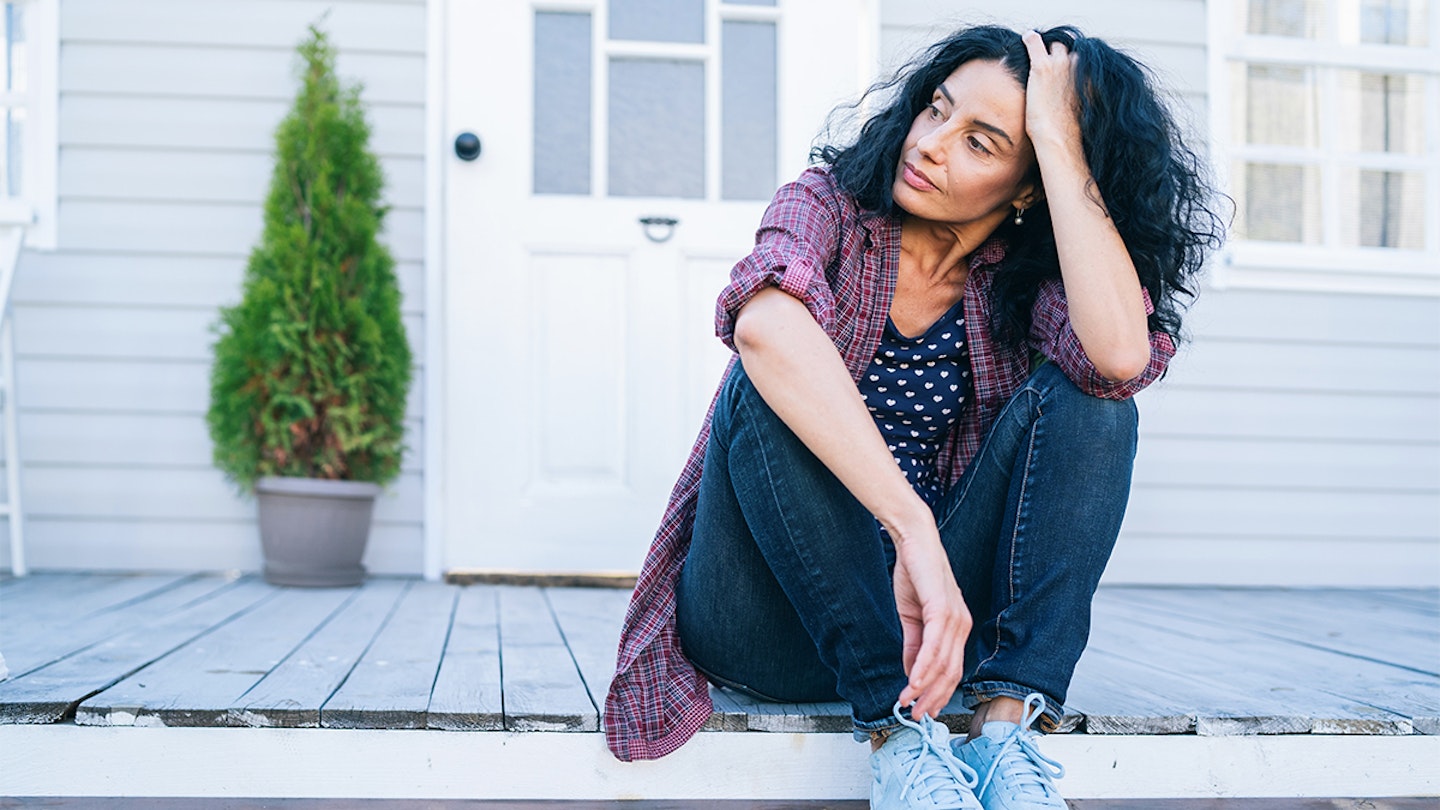When you’re going through the menopause, all sorts of changes can happen to your body. And while you might be aware of the physical signs such as hot flushes and vaginal dryness, you might not be so knowledgeable about the effects the menopause has on your mental health.
If you’ve noticed you’re feeling a bit more anxious lately, you might be experiencing one of the lesser known symptoms of the menopause.
We caught up with Cosmetic doctor and menopause expert, Dr Shirin Lakhani, to find out more about how the menopause can have an impact on our mental health, and what we can do to help.
Why can the menopause cause anxiety?
The menopause and perimenopause are a natural part of the ageing process, and are brought about by natural hormone changes that usually happen between the ages of 45 and 55. It can be an extremely unsettling and worrying time for women, and there are a whole host of symptoms that women can experience, including anxiety.
It’s important to remember that the perimenopause comes before the menopause, and is a time of transition for women. It occurs when the ovaries gradually start to produce less oestrogen, progesterone and testosterone. There’s no specific age that the perimenopause happens and it varies from one woman to another, but it can begin up to ten years before the menopause.
Symptoms of perimenopause can be as severe as the menopause and many of these symptoms can all contribute to your anxiety levels. The symptoms are a whole range of things including:
Irregular periods
Mood changes
Uncomfortable sex due to vaginal dryness
Decreased libido as a result
The difference is that menopause means your periods have stopped for at least a year. Until that happens you are perimenopausal.
The hormone fluctuations can also cause anxiety directly as they can impact the chemical balance in the brain.
How can you treat it?
The most direct way to treat it is with HRT. HRT can be an effective way of reducing anxiety because it helps to re-balance the hormones and reduce symptoms.
Many women also find that the menopause negatively impacts their sex life and this can further add to and increase anxiety.
It’s reassuring to know, however, that you can absolutely continue to have sex during and after the menopause and there are a number of effective treatments available to treat the symptoms associated with sexual dysfunction that can make sex painful and less enjoyable.
HRT and BHRT (Bioidentical/Bodyidentical hormones) can offer significant support in rebalancing your hormones. BHRT are plant-based and promoted as a more natural form of HRT, often with fewer side effects. Derived from plants such as Mexican yams, they have the same structure as the hormones made naturally in the body and, like conventional HRT, combat the menopause by raising levels of oestrogen, progesterone and testosterone.
PRP Therapy with treatments like O-Shot have shown to have a positive result in treating atrophy as well as incontinence while hyaluronic acid injections and localised oestrogen can also effectively offer relief from symptoms.
One of the ways in which vaginal dryness and painful intercourse can be addressed is with the O-Shot. This non-surgical procedure involves withdrawing the patient’s own blood, processing it to create platelet-rich plasma (PRP) and then re-injecting it in the intimate areas.

For women experiencing vaginal laxity as a result of menopause the Ultra Femme 360° works by building collagen in the area which helps to strengthen the vaginal walls.
It works by delivering radio frequency to the underlying fibres, provoking the skin to produce new collagen. As a result, women experience a dramatic increase in vaginal tightness. This treatment can also help to treat stress incontinence and early prolapse.
Whilst addressing the intimate medical issues affecting many women aged fifty and above will ensure that continue to enjoy sex and do not suffer anxiety as a result, to others it’s not actually a physical condition that’s affecting them but more of a mental one.
Confidence for example can be a huge factor in how good or bad your sex life is and this can be very closely linked to anxiety.
As men and women age emotional issues, such as depression and anxiety, can also have a huge impact on the sex life and must be addressed with as much urgency as the physical symptoms. Counselling and therapy can be the key to getting to the root of the problem before then being able to improve the physical symptoms.
Another way we can help to reduce the anxiety that some women experience as a result of the menopause is by helping to create a greater understanding of its symptoms and more awareness in the workplace.
If you're struggling with your menopause symptoms and think you might benefit from some hormone therapy, make sure you speak to your GP to find out more.
Meet the expert: Dr Shirin Lakhani

“I think that it’s important that women like myself speak out to support raising awareness of the menopause and its symptoms as well as such law changes in order to protect working women now and in the generations ahead.
“I read recently that ten cases of alleged discrimination against women affected by the menopause have been heard by industrial tribunals in Scotland in the past five years, with three of them being last year. Surely it’s about time that we help to remove another one of the barriers that make working life harder for women and give them better rights when they’re going through the seismic change that is the menopause.
“It’s only by breaking down the barriers and taboos surrounding menopause and intimate health that we can truly begin to allow women to play on an even playing field with their male counterparts and help to reduce the anxiety that these issues can still cause for so many women.”
